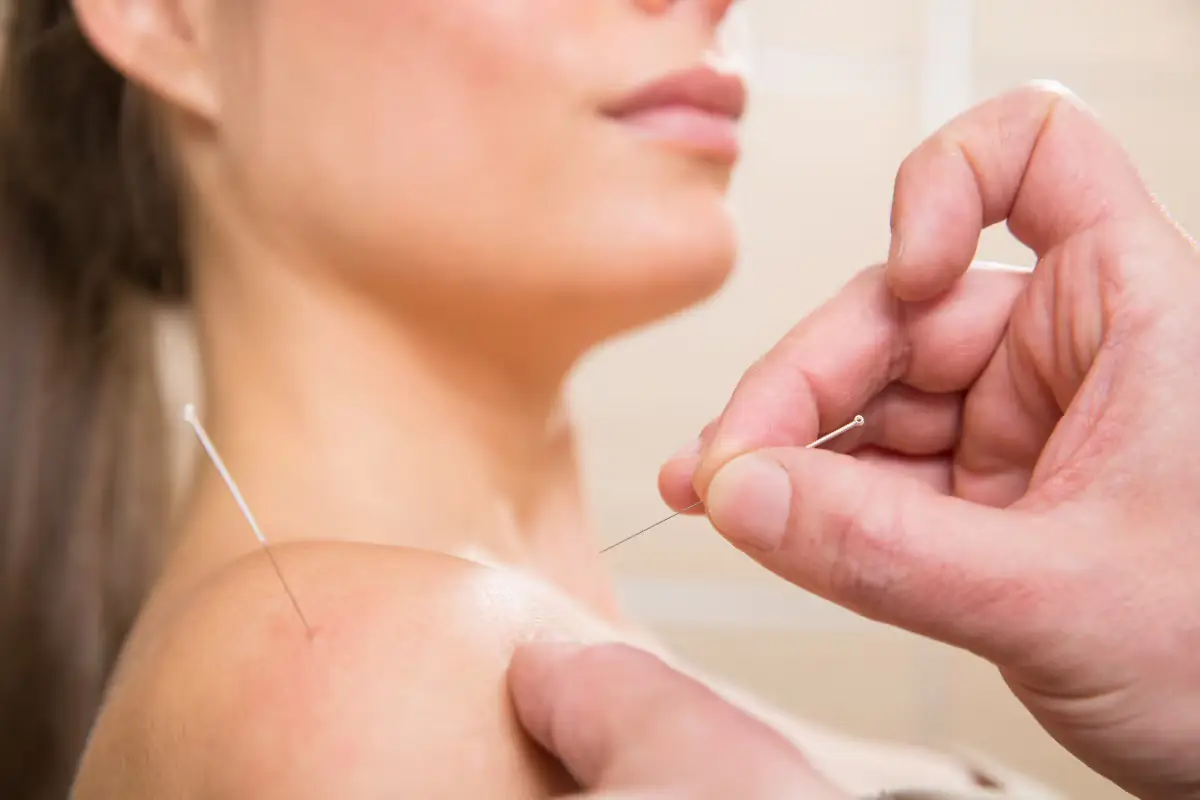Arthritis is a common long-term pain condition which affects more than 10 million people in the U.K. While there is no cure for arthritis, the pain can be managed with surgery, over the counter medications, exercise and various lifestyle changes and alternative options.
Acupuncture is an ancient tradition which originated in China over 200 years ago and is a central element of traditional Chinese medicine.
We spoke to Lisa Milnes from Five Element Acupuncturist at South London Acupuncture and Chloe Stevens from Chloe Stevens Acupuncture London to find out more about acupuncture and how it works.
What is acupuncture and how does it work?
Acupuncture involves penetrating specific points of the skin with thin, metallic needles to stimulate sensory nerves. This is thought to help with various conditions including knee pain, headache, and lower back pain because, according to the NHS, it causes the body to produce pain-relieving endorphins.
The practice of acupuncture is thought to help restore the natural flow of Qi, and therefore alleviate symptoms. Studies suggest that some people find acupuncture helpful for alleviating the pain of arthritis, although there is no concrete evidence.
“Traditional Chinese medicine practitioners believe the human body has more than 2,000 acupuncture points connected by pathways or meridians. These pathways create an energy flow (Qi, pronounced “chee”) through the body that is responsible for overall health. Disruption of the energy flow can cause disease. By applying acupuncture to certain points, it is thought to improve the flow of Qi, thereby improving health,” says Lisa.
“When thinking about this from a Western perspective, we place acupuncture needles in nerve-rich areas of the skin’s surface to stimulate the connective tissues and central nervous system – our control center. This stimulation triggers several biochemical processes, which influence specific tissues, glands, organs and functions of the body and help the body to heal itself without synthetic assistance.” says Chloe.

Does acupuncture hurt?
“Acupuncture needles are very small, fine and solid and therefore completely different to the needles used by your doctor or dentist. Acupuncture needles do not hurt or bruise in the same way as other needles. They rarely cause pain, but you can expect to feel a sensation when the needle contacts your energy. This is different for every person. It is often described as a dull, tingling, or sharp ache which only lasts a second or so,” Lisa says.
While acupuncture is generally safe, some people do experience mild side effects which can include bleeding, bruising, drowsiness, nausea, and the worsening of symptoms. It is also really important to only accept acupuncture from a healthcare professional or a licensed practitioner from The National Acupuncture Organisation.
If acupuncture is performed incorrectly it could cause infection, punctured organs and injury to the nervous system. You should talk to your doctor before having acupuncture if you are allergic to metal or have a bleeding disorder.
What are the benefits of acupuncture?
“As well as promoting a greater sense of general well-being and enhanced enjoyment of life, acupuncture treatment can be an extremely effective drug-free form of pain relief. Patients will also find their immune systems are better able to withstand flu and colds and, if they do fall ill, they tend to suffer less badly and recover more quickly. Many patients continue to use acupuncture as an effective form of preventive medicine,” Lisa says.
Acupuncture may help relieve stress, improve sleep, improve mood by releasing serotonin and block out pain signals which may reduce the pain of arthritis and other conditions.
“Acupuncture is a natural, drug free system of medicine that has minimal contraindications. It also gets to the bottom of the issue, rather than just masking the symptoms like many medications do,” says Chloe.
Can acupuncture help with the pain of arthritis?
“Studies suggest that acupuncture can relieve the symptoms of arthritis for some people. Acupuncture alone or combined with other treatments are beneficial for the conditions of arthritis without adverse effects reported and can improve function and quality of life. Acupuncture has an anti-inflammatory effect, antioxidative effect, and regulates the immune system function,” Lisa explains.
If you would like to try acupuncture, we suggest it is used in conjunction with other forms of pain management such as regular exercise, a healthy diet, and using gadgets to help daily tasks easier. We also suggest you talk to your doctor about ways to manage your pain that works for you.
Have you ever tried acupuncture to deal with the pain of arthritis? Let us know on Facebook!




